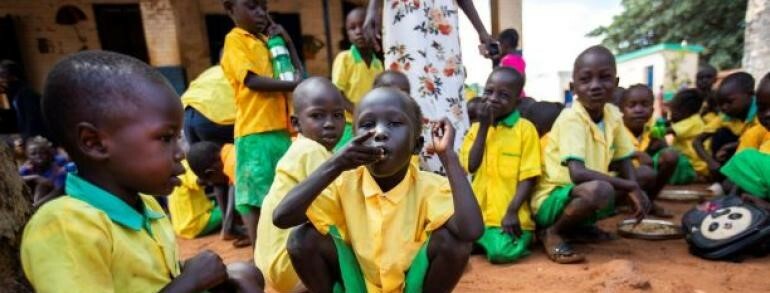About 3.3 million children in South Sudan are currently living in households affected by food insecurity, according to a new report released by the South Sudan Food Security and Livelihood Cluster.
The report, titled “Protecting Children in South Sudan’s Food Security Crisis,” highlights the alarming situation in the country, where an estimated 7.76 million people, including 3.3 million children, are in dire need of food security and livelihood support.
The report paints a bleak picture of the overall food security situation in South Sudan, worsened by a combination of compounding shocks, including flooding, conflict, displacement, and the high cost of living. As a result, an estimated 6.1 million women, girls, men, and boys are facing various protection risks and violations in 2023.
During the launch of the report in Juba, Mr. Leon Kohl, First Secretary for Political Affairs at the German Embassy, emphasized the severity of the crisis, stating, “3.3 million children lived in households that lack the consistent ability to buy enough food.”
He further highlighted the need for urgent action, saying, “An estimated 6.1 million people will be or are facing protection risk and violations in 2023, with 3.1 million children urgently in need of lifesaving and life-sustaining children protection. Children protection services are socking, 2.8 million school-aged children are out of school, 46% of children are engaged in child labour, and 1 of every two girls are married before the age of 18.”
Mrs. Pornpun Rabiltossaporn, Country Director of Save the Children, called on humanitarian actors, the government, and donors to prioritize addressing the children’s protection needs to safeguard them from hunger.
She emphasized the critical link between food insecurity and child protection risks, stating, “There is evidence of strong leakages between food insecurity and child protection risk that come with so many implications, and we are here today to bring about this spotlight on how these issues are linked and how we together as humanitarian and development actors can jointly and effectively bring about a solution for the children and the community we serve.”
Esther Ikere Ladu, Undersecretary in the Ministry of Gender, Child, and Social Welfare, shed light on the reasons pushing children to the streets. She expressed her concern, saying, “Still, we see a great number of children on the street, and what is forcing children out on the street is, first and foremost, the lack of food and violence in the houses. During the conflict, some mothers are left widows, and some decide to marry, and the home might not be conducive for the child.”




